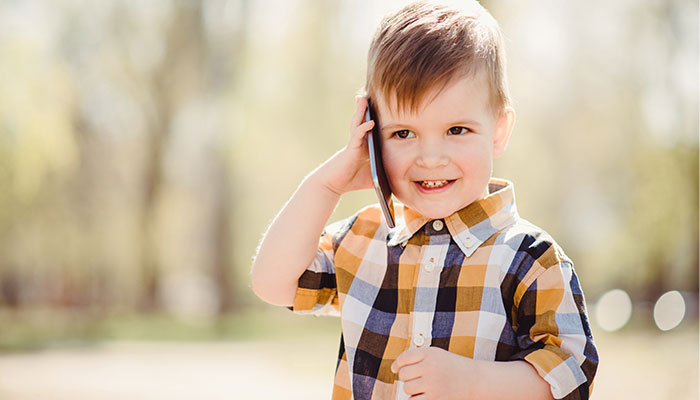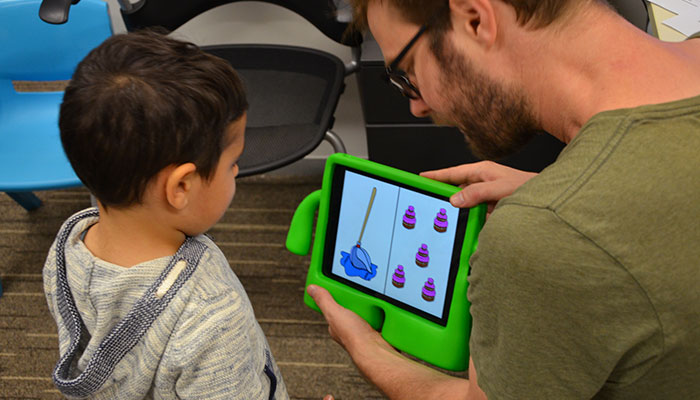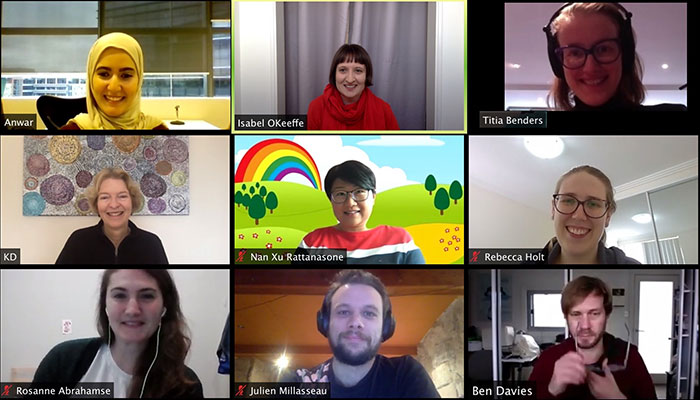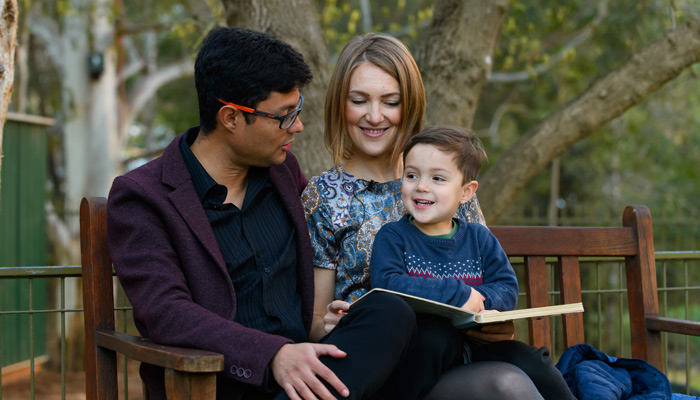School might be back – but many pre-schoolers and school children are still missing out on most of their community and extra-curricular activities. For families who are wracking their brains for ways to keep kids occupied with productive activities, experts at the Macquarie University Child Language Lab have designed a series of free language games that can be played at home.

Connected: new language games developed by Macquarie researchers for pre-schoolers can be played with family members on the phone.
Macquarie's Child Language Lab usually has a regular stream of parents and children visiting to take part in studies, but with visits on hold due to COVID-19 restrictions, the researchers have come up with some alternatives in the form of creative new games.
The language games are released on the Lab’s website and social media pages each week, with four games available at the time of writing.
The games can be played live within families but also online, connecting children with grandparents, extended friends and family who are interstate or who they can’t yet visit, bringing new ways for people to playfully interact across distance via phone or internet.
We wanted to come up with some fun activities that could be done at home, partly as a way of giving back to the families who come to take part in our research.
“Our group studies how children learn language, which provides a foundation for school readiness and academic success,” says Dr Titia Benders, who is a lecturer in Linguistics and the Deputy Director of the Child Language Lab.
Parents of young children are often endlessly fascinated by the ways their child starts to communicate, with the progress from first words to full sentences a disarming excursion into the way our brains grow and develop, she adds.
Giving back to families
The Child Language Lab has about 2000 families in their participant register with some of the families involved in current research projects.

Participting through play: children regularly participate in research projects at the Macquarie University Child Language Lab.
The researchers are working on ways to continue some of their research projects online, but also want to continue to connect with families, Benders says.
They have had help from Macquarie University PACE students who are gaining some valuable experience, she adds.
“We wanted to come up with some fun activities that could be done at home, partly as a way of giving back to the families who come to take part in our research, and because we know that the kids and parents really enjoy coming to the sessions here,” she says.
In the ‘Sound of Rooms’ games, players must listen carefully to guess where the person is speaking from. It’s a great one to play over the phone with grandparents.
“Because we often work with children who are quite young, we have come up with games that are relatively low-tech and can be done with regular household items."
But Benders says that parents and older children are often fascinated by the science of how language works – so the team have catered for their multi-age audience with some information about the science behind the games.
Older children can learn about audiovisual integration (how we use both audio and visual cues in understanding speech) and the ways that different emotions can sound differently in speech (the acoustics of emotions).
Clear instructions (and interesting information about what the games are exploring) are outlined in PDF booklets that can be downloaded for free from the Child Language Lab website.
The sound of feelings
‘The Sound of Feelings’ includes a challenge where one player chooses a feeling and tries to sing a nursery rhyme expressing that feeling. Other players guess the feeling, just by listening, not by looking at the singer’s face. The game can be played over the phone or online, too.
The team demonstrated the online game with a Facebook video starring Benders with the help of Child Language Lab Coordinator, Isabel O’Keeffe.
The ‘Listening to Faces’ games include a lip-reading game with pictures that children draw themselves.
The science section of this game series explains how, even though we normally use our eyes when we listen, lip-reading is a difficult skill to master.
In the ‘Sound of Rooms’ games, players must listen carefully to guess where the person is speaking from. It’s a great one to play over the phone with grandparents, who can move to a bathroom or step into a cupboard and play a remote guessing game with their grandchildren.

As well as being lots of fun, and an active way for kids to interact with family members they can’t see for a while, all games help children put a name to sound cues they already instinctively know, and can open up conversations about listening and about sound and speech, Benders says.
The team has invited their social media followers to suggest language topics they want to know more about, which could prompt new games. “We’re launching new topics regularly,” Benders says.
Dr Titia Benders is a Lecturer in Linguistics and Deputy Director of the Child Language Lab at Macquarie University.



